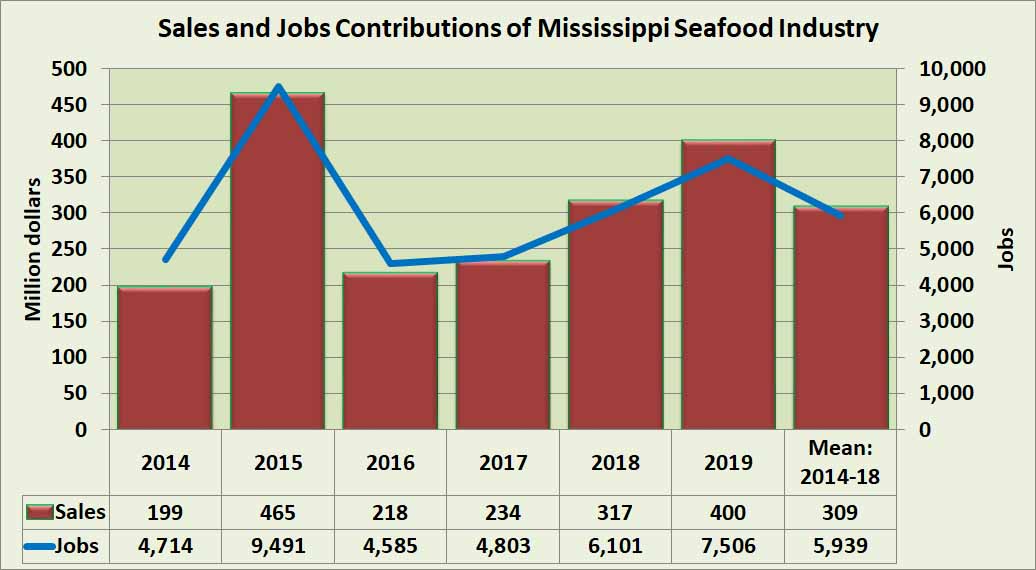Mississippi Seafood Industry
The seafood industry consists of commercial harvesting, seafood processing, seafood wholesaling, seafood and fish markets, and restaurant establishments.
-
Commercial harvesting or fishing corresponds to finfish fishing and shellfish fishing. It comprises commercial fishermen using various gears onboard large vessels and small boats.
-
Seafood processing primarily corresponds to seafood canning and fresh and frozen seafood processing. It involves plants engaged in primary wholesale and processing of seafood products.
-
Seafood importing was added to the seafood industry, starting in 2009. It comprises establishments that buy seafood products from counties of origin outside the United States.
-
Seafood wholesaling corresponds to fish and seafood merchant wholesalers. It includes secondary wholesale and processing of seafood products.
-
Seafood and fish markets correspond to the retail trade of fish and seafood products.
-
Seafood restaurants include the retail trade of seafood products by eating and drinking places.
Components of Economic Contributions
The total economic impact is the sum of direct, indirect, and induced impacts. Direct impacts express the economic impacts in the sector in which the expenditure was initially made. Indirect impacts result from changes in the economic activity of other industrial sectors that supply goods or services to the sector being evaluated. Induced impacts are the result of personal consumption expenditures by industry employees.
Types of Economic Contributions
Income, value-added, and output impacts are expressed in dollars for the year specified by the user. Output or sales is the gross sales by businesses within the economic region affected by an activity. Labor income includes personal income such as wages and salaries and proprietors’ income or income from self-employment. Employment impacts are expressed in terms of a mix of both full-time and part-time jobs.
Sales and Employment Contributions
The economic contributions of the entire Mississippi seafood industry since 2014 are shown in the figure below. There were significant decline in the levels of contributions resulting from Hurricane Katrina in 2005 and the Deepwater Horizon oil spill in 2010. The entire Mississippi seafood industry generated an average of 309 million dollars per year in total economic contribution since 2011. An average of 6,000 jobs were created in Mississippi by the whole seafood industry in the same period.
Figure 1. This figure shows the annual sales and job contributions of the entire Mississippi seafood industry since 2006. The source of raw data is NOAA Fisheries.
Sectoral Economic Contributions of Seafood Industry
Economic Contributions by Major Species
Links to the Economic Contributions in the U.S., Alabama, and Mississippi

